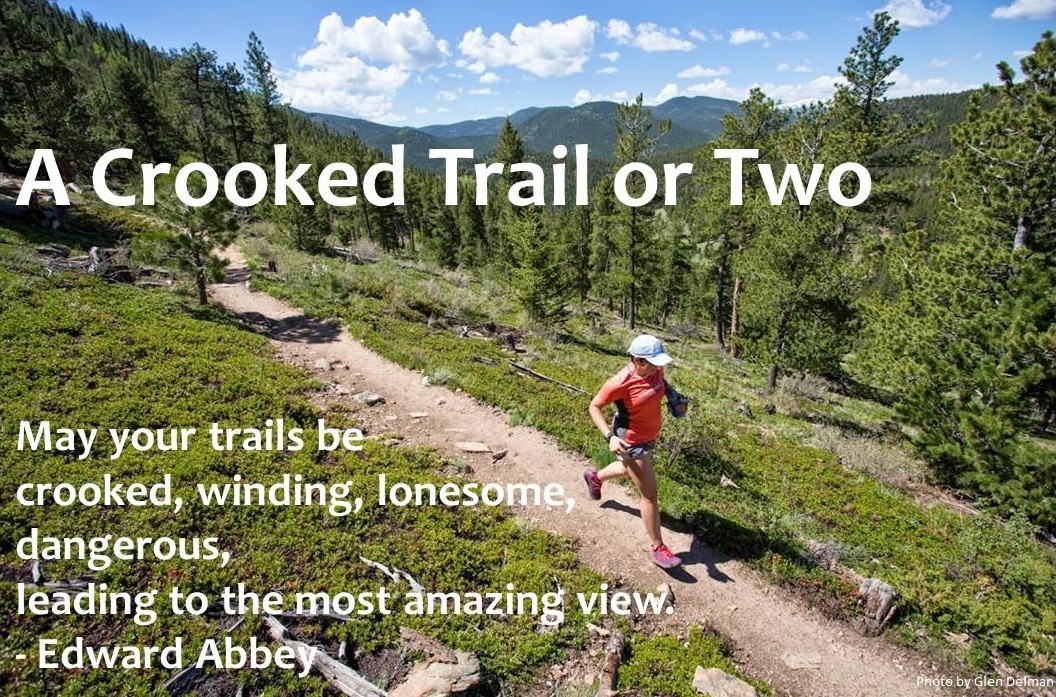How Not to Bonk
As the Mt. Disappointment 50k approaches, I thought I'd share some hard-won wisdom I acquired while training for this little wonder of a race, in case it saves some runner out there from repeating my training mistakes.
The Mt. Disappointment 50k is a very well-run race. Weeks before the event, Race Director Gary Hilliard schedules two training runs to familiarize runners with the rugged mountainous terrain, and being a 50k newbie, I made sure to participate in these previews of the course. So the early-morning hours of Saturday, July 8 found me heading down the hill at an easy pace, toward the Switzer's picnic area, as I checked out the eastern loop of this figure-8 course.
Each loop of the course is approximately 15 miles, so I headed out with a Clif Bar in tow and enough Gatorade for three hours -- more than enough time, I thought, to cover the distance. I felt great. The air was cool, and a breeze drifted in from the west. The climbing switchbacks of Fire Road 2N64 did heat me up a bit, but not enough to make me uncomfortable, and a sip of some cold Coca-Cola at the Josephine Saddle aid station re-energized me.
A couple miles later, as I started climbing up the Strawberry Trail, I began to feel not-so-good. The breeze I'd so enjoyed at the beginning of the run was now being blocked by the mountains on the west side, and the sun was rising ever higher in the sky. Every now and then, a hot gust of air from the desert blew in from the east. Moisture was being baked out of me a little at a time, and even the Gatorade I was drinking wasn't stopping a strange, light-headed feeling from trickling down through my brain.
Starting to feel a little dizzy, I sat down on a rock in a shady spot alongside the trail. "I must be hungry," I thought, so I opened the Clif Bar I'd been carrying and took a bite. I might as well have eaten mud, or cement. That one bite (whose chocolate chips and yummy oats usually pique my appetite) turned my stomach. My mouth suddenly refused to chew, and my tongue couldn't spit it out quickly enough.
I held my head in my hands as the world started to spin.
Just then, along came The Runner Who Saved My Life.
"Are you okay?" he asked.
"I'm feeling really weird," I replied, the world still shifting strangely in my peripheral vision.
"Ah, so you're bonking," he said, matter-of-factly. "Eat this packet of GU, drink the rest of your Gatorade, and follow me." He helped me up. "We'll walk out the rest of the way."
As the GU dissolved in my mouth, the clouds in my brain began to part. My vision steadied. I started to feel strong again. It was amazing how quickly the GU made me feel a whole lot better.
When I finished the first GU packet, The Runner Who Saved My Life -- also known as Michael Schneider, DDS -- passed me another one, and then a third. As we walked, he explained what, exactly, "bonking" is.
The average human body stores enough glycogen -- that is, carbohydrate stored in the liver and in your muscles -- to produce around 2,000 calories of energy. But intense exercise can burn 600 to 800 calories in only one hour! By the numbers alone, it's easy to see how after three hours of exercise, you can find yourself totally depleted. Your brain runs only on glycogen, so when your liver can no longer deliver glycogen to your brain, fatigue, disorientation, hallucinations, and a loss of consciousness can result.
So, how not to bonk?
In a word: eat.
Experts recommend eating something every 30-45 minutes, depending on the length of your run. What you eat is less important than the fact that you eat something, particularly since your stomach might be more choosy once you're on the run. Ideally, you're aiming for foods that are quickly absorbed by your body and rich in electrolytes (sodium, calcium, potassium, magnesium and bicarbonate). This could mean energy gels, sports drinks, and even -- if your stomach can keep it down -- solid foods like fruit, pretzels, trail mix, salted potatoes, or a sandwich -- all of which are commonly found at ultramarathon aid stations.
I got lucky when I bonked: a knowledgeable, experienced runner came along, knew exactly what I needed, and gave it to me.
But you may not be so lucky!
Carry fuel for yourself -- and consider carrying a little extra for bonking runners you may encounter on the trail. Armed with knowledge and a little extra GU, you, too, may become The Runner Who Saved A Life.
See you on the trail!

